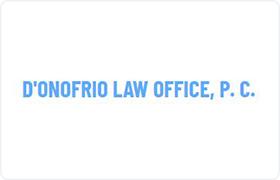 Bairdford Estate Lawyers, Pennsylvania
Bairdford Estate Lawyers, Pennsylvania
Sponsored Law Firm
-
 x
x

Click For More Info:
-
D'Onofrio Law Office, P.C.
651 Holiday Drive Foster Plaza 5, Ste. 400 Pittsburgh, PA 15220» view mapEstate Law Helping You Plan For The Future
Contact my office today to schedule your initial complimentary consultation and allow me to solve your problems for you.
800-975-5870
Lawyers
1-2 of 2 matches
Estate, Lawsuit & Dispute, Real Estate, Business, Wills & Probate
Insurance, Estate Planning, Federal Appellate Practice, Litigation



 John D'Onofrio Pittsburgh, PA
John D'Onofrio Pittsburgh, PA Practice AreasExpertise
Practice AreasExpertise